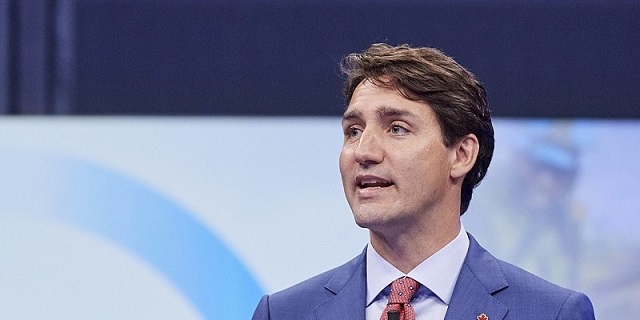Economy
Key energy agencies diverge as demand and oil prices climb
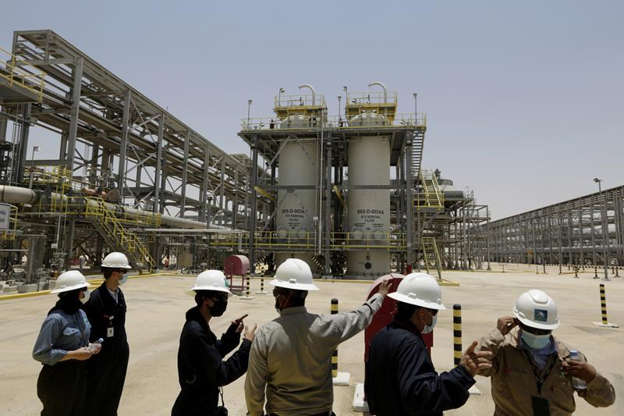
DUBAI, United Arab Emirates (AP) — Leaders of the world’s most consequential energy bodies gathered for a forum Wednesday to discuss the uncertain future of oil as demand rebounds and prices climb, all while a growing roster of nations pledge to transition to cleaner forms of energy.
The forum, which included speakers from the Organization of Petroleum Exporting Countries, the International Energy Agency and the International Energy Forum, presented varying forecasts for oil demand and discussed energy security and market stability.
Yet from the outset, the wider debate on how the world should best transition away from so-called dirty fuels and other sources of carbon emissions that pollute the air played out as speakers gave their remarks.
Major oil-producing nations, like Saudi Arabia and the United Arab Emirates, have long argued that a rapid energy transition away from the fossil fuels that they continue to rely on for revenue will impact global economic growth and hurt the world’s poorest. Those backing a fast-tracked transition insist new investments in energy must go toward expanding existing wind and solar solutions and in funding innovative solutions if the world is to avoid catastrophic global warming levels. On both sides, however, there is agreement that the world is far from reaching sustainable targets as demand for energy grows.
“We are not on track. So how should policy makers respond to this dilemma? The reality is that 80% of the world’s energy needs continue to be met by fossil fuels,” said Joseph McMonigle, secretary general of the Saudi-based International Energy Forum that hosted the symposium. The IEF is the largest organization of energy ministers, with 71 member states, including the United States.
McMonigle said global energy demand has “roared back” to pre-pandemic levels, but that investments in oil and gas are not back to where they were before the COVID-19 crisis.
“Disinvestment in energy supply will not deliver a just and orderly transition and cannot be a response to the climate crisis,” he said, arguing that countries should invest in both greener forms of energy as well as fossil fuels.
The IEF has called for oil and gas investment to reach $525 billion through 2030 to ensure “market balance” despite a slowdown projected in how much demand for oil will grow. The group notes that investment in the oil and gas sector in 2021 stood at $341 billion. Without more financing, the IEF says demand could outstrip future supply within the next five to six years. They say it could also result in switching to more polluting energy sources such as wood and coal.
Others disagree. The International Energy Agency’s executive director has said the world does not need more investments in new oil, gas and coal projects.
From Paris, the IEA’s Fatih Birol did not directly address the comments made by McMonigle, but he echoed the sentiment that the energy transition must happen in an “orderly manner” so that climate targets are met and oil producing economies are seen as part of the solution.
To meet these targets, the world must reduce its consumption of fossil fuels, Birol said, before later adding: “We cannot drop oil and gas tomorrow.”
“The world will need oil and gas for several years to come. However, if we want to reach our climate targets we would need less oil and less coal and less gas than we use today in an unabated format.”
The IEA says that for the world to reach net-zero emissions by 2050, annual clean energy investment worldwide will need to more than triple by 2030 to around $4 trillion. It has also called out the energy sector as the source of around 75% of greenhouse gas emissions, a main driver in climate change.
The IEA estimates that world oil demand is set to expand by 3.2 million barrels per day this year, reaching 100.6 million barrels per day as restrictions to contain the spread of the coronavirus ease. Benchmark crude prices rose by more than 15% in January to cross the $90 per barrel threshold for the first time in more than seven years.
The rebound in demand for oil, combined with a shortfall in energy investments, rising prices and market uncertainty has led to varying energy outlook scenarios. The diverging outlooks by OPEC, the IEF, IEA and others have an impact on how governments choose to formulate their energy policies and decide on production levels as they commit to net-zero pledges.
___
Follow Aya Batrawy on Twitter at www.twitter.com/ayaelb
___
Follow AP’s climate coverage at http://apnews.com/hub/climate
Aya Batrawy, The Associated Press
Economy
Canadians experiencing second-longest and third steepest decline in living standards in last 40 years

From the Fraser Institute
From 2019 to 2023, Canadian living standards declined—and as of the end of 2023, the decline had not yet ended, finds a new study published today by the Fraser Institute, an independent, non-partisan Canadian public policy think-tank.
“Despite claims to the contrary, living standards are declining in Canada,” said Grady Munro, policy analyst at the Fraser Institute and co-author of Changes in Per-Person GDP (Income): 1985 to 2023.
Specifically, from April 2019 to the end of 2023, inflation-adjusted per-person GDP, a broad measure of living standards, declined from $59,905 to $58,111 or by 3.0 per cent. This decline is exceeded only by the decline in 1989 to 1992 (-5.3 per cent) and 2008 to 2009 (-5.2 per cent). In other words, it’s the third-steepest decline in 40 years.
Moreover, the latest decline (which comprises 18 fiscal quarters) is already the second-longest in the last 40 years, surpassed only by the decline from 1989 to 1994 (which lasted 21 quarters). And if not stabilized in 2024, this decline could be the steepest and longest in four decades.
“The severity of the decline in living standards should be a wake-up call for policymakers across Canada to immediately enact fundamental policy reforms to help spur economic growth and productivity,” said Jason Clemens, study co-author and executive vice-president at the Fraser Institute.
- Real GDP per person is a broad measure of incomes (and consequently living standards). This paper analyzes changes in quarterly per-person GDP, adjusted for inflation from 1985 through to the end of 2023, the most recent data available at the time of writing.
- The study assesses the length (number of quarters) as well the percentage decline and the length of time required to recover the income lost during the decline.
- Over the period covered (1985 to 2023), Canada experienced nine periods of decline and recovery in real GDP per person.
- Of those nine periods, three (Q2 1989 to Q3 1994, Q3 2008 to Q4 2011, and Q2 2019 to Q2 2022) were most severe when comparing the length and depth of the declines along with number of quarters required for real GDP per person to recover.
- The experience following Q2 2019 is unlike any decline and recovery since 1985 because, though per person GDP recovered for one quarter in Q2 2022, it immediately began declining again and by Q4 2023 remains below the level in Q2 2019.
- This lack of meaningful recovery suggests that since mid-2019, Canada has experienced one of the longest and deepest declines in real GDP per person since 1985, exceeded only by the decline and recovery from Q2 1989 to Q3 1994.
- If per-capita GDP does not recover in 2024, this period may be the longest and largest decline in per-person GDP over the last four decades.
 Read the Full Report
Read the Full Report
Authors:
Economy
Feds spend $3 million to fly 182 politicians and bureaucrats to climate conference
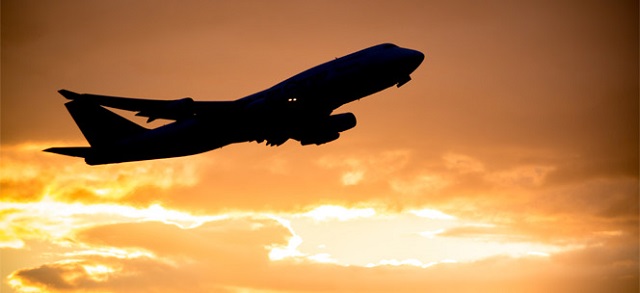
From the Canadian Taxpayers Federation
Author: Ryan Thorpe
Feds trip to COP28 in Dubai cost $3 million
The cost for Canada to send hundreds of people to COP28 in Dubai has doubled, rising to nearly $3 million, according to government records obtained by the Canadian Taxpayers Federation.
Included in those costs is $1.3 million the federal government dished out to host a “Canada Pavilion” at the summit, which featured a rapper performing a song on “climate disinformation,” while giving a shoutout to Environment Minister Steven Guilbeault.
“Nothing screams fighting climate change like flying around the world burning through jet fuel and millions of tax dollars,” said Franco Terrazzano, CTF Federal Director. “Here’s a crazy idea: maybe the feds don’t need to spend $3 million flying 182 politicians and bureaucrats to Dubai.”
The federal government paid for at least 182 people to go to COP28, held from Nov. 30 to Dec. 12, 2023, in Dubai, United Arab Emirates.
A previous report from the National Post pegged the cost for Canada’s delegation at $1.4 million.
But the bill now sits at $2,954,188, including $825,466 for transportation, $472,570 for accommodations and $295,455 for meals and incidentals, according to the records.
The records indicate the cost could rise even higher, as certain invoices and travel claims “have yet to be processed.”
Costs included $1.3 million for a “Canada Pavilion” to “showcase the breadth of Canadian climate leadership.”
At the Canada Pavilion, a Canadian rapper known as Baba Brinkman – the son of Liberal MP Joyce Murray – performed a rap on “climate disinformation.”
“Climate disinformation, get that immunization, the vaccine for bad meme infiltration,” Brinkman rapped. “Climate misinformation, it leads to polarization, which leads to radical conspiracy ideation.”
Environment Minister Steven Guilbeault also received a shoutout during Brinkman’s rap.
“Really? Hosting a rapper half-way around the world to drop rhymes at a government podium will help the environment?” Terrazzano said.
The records were released in response to an order paper question from Conservative MP Dan Mazier (Dauphin-Swan River-Neepawa).
Most of the hotel expenses came from the Dubai Marriott and the Premier Inn at the Dubai Investment Park, with rooms coming in between $150 and $400 per night.
The most expensive digs was a $816-per-night suite at the Pullman Dubai Jumeriah Lakes Towers, a “five-star hotel offering upscale accommodations.”
The Canadian delegation also handed out $650 worth of gifts during the trip.
-

 Economy1 day ago
Economy1 day agoFeds spend $3 million to fly 182 politicians and bureaucrats to climate conference
-

 COVID-192 days ago
COVID-192 days agoNIH Quietly Altered Definition For Gain-Of-Function Research On Its Website, Former Fauci Aide Confirms
-
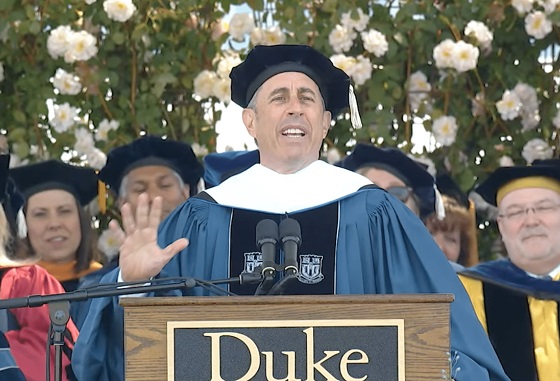
 Bruce Dowbiggin2 days ago
Bruce Dowbiggin2 days agoJerry Came to See The Babies. And They Walked Out On Him
-
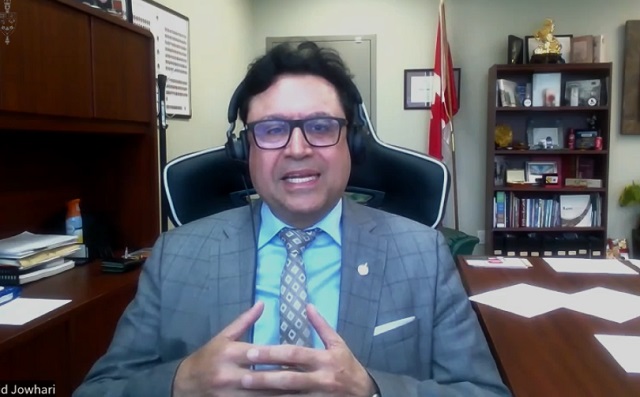
 Addictions10 hours ago
Addictions10 hours agoLiberals shut down motion to disclose pharma payments for Trudeau’s ‘safe supply’ drug program
-
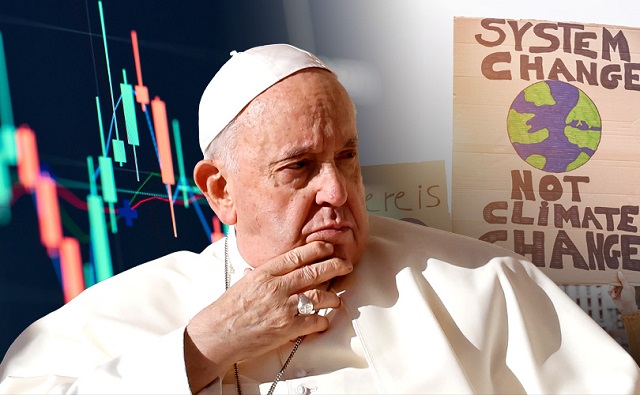
 Energy2 days ago
Energy2 days agoPope Francis calls for ‘global financial charter’ at Vatican climate change conference
-
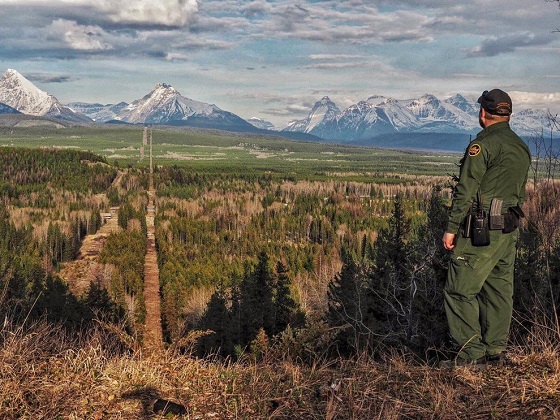
 Crime2 days ago
Crime2 days agoThe US Canadian border: Greatest number of terrorist watch list individuals being apprehended at northern border
-

 Energy2 hours ago
Energy2 hours agoTech giants’ self-made AI energy crisis
-
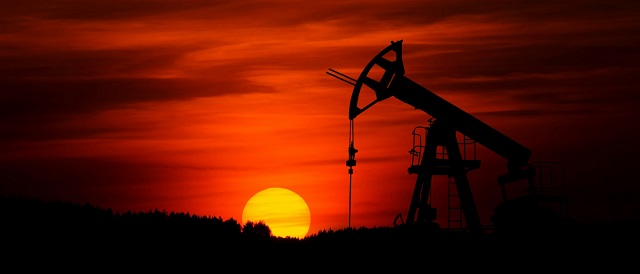
 Energy1 day ago
Energy1 day agoNew Report Reveals Just How Energy Rich America Really Is





